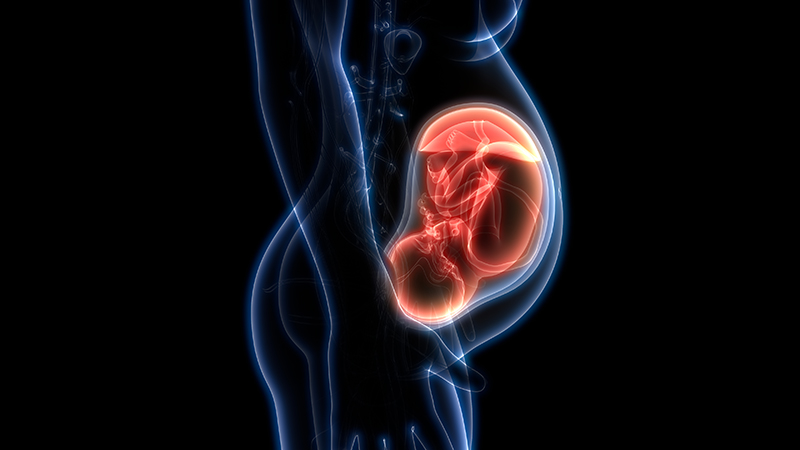Foetuses ‘speak’ to their mother’s placenta new research finds
"This study is the first to identify the significance of a metabolic signalling pathway in the fetus compared to in the placenta"
Developing foetuses communicate directly with the placenta when they need more nutrients, a new study has discovered.
The placenta is often thought of as part of the mother but it is actually a separate organ that develops with the foetus and acts as a boundary between the two.
Its growth begins at conception and it attaches to the wall of the mother’s uterus and regulates the foetus’s temperature, provides nutrients and oxygen from the mother’s blood supply and removes the baby’s waste products.
Despite its vitally important role in pregnancy, the placenta is still one of the most mysterious organs of the human body. Previous studies have suggested that the nutrient supply provided by the placenta can adapt to a foetus’s changing needs, but how it knows when to do so has never before been investigated.

An illustration of a foetus in the womb. Image credit: Shutterstock user Magic mine
By studying pregnant mice, researchers at the lab of Dr Amanda Sferruzzi-Perri, a Research Associate at St John’s College, University of Cambridge, have now been able to detect a two-way feedback loop between the foetus and the placenta.
They discovered the placenta directly communicates with the foetus and responds to its messages. Signals are sent by the developing child to the placenta for more nutrients and the placenta responds by increasing the amount of nutrients from the mother. The findings were published in the biomedical journal eLife this week.
Dr Sferruzzi-Perri said: “This study is the first to identify the significance and downstream mediators of a metabolic signalling pathway in the fetus compared to in the placenta, which are responsible for driving changes in placental phenotype, fetal nutrient acquisition and growth.”
The research could explain why placental defects or incorrect signalling can cause growth restriction in the foetus. Growth restriction affects 5-8 per cent of pregnancies in the UK – around 56,000 births a year – and can lead to lifelong health problems in humans or even foetal death.
The team is hopeful that a better understanding of how the foetus and placenta communicate can lead to targeted therapies on the placenta itself without acting on the baby or the mother.
Published: 05/07/19